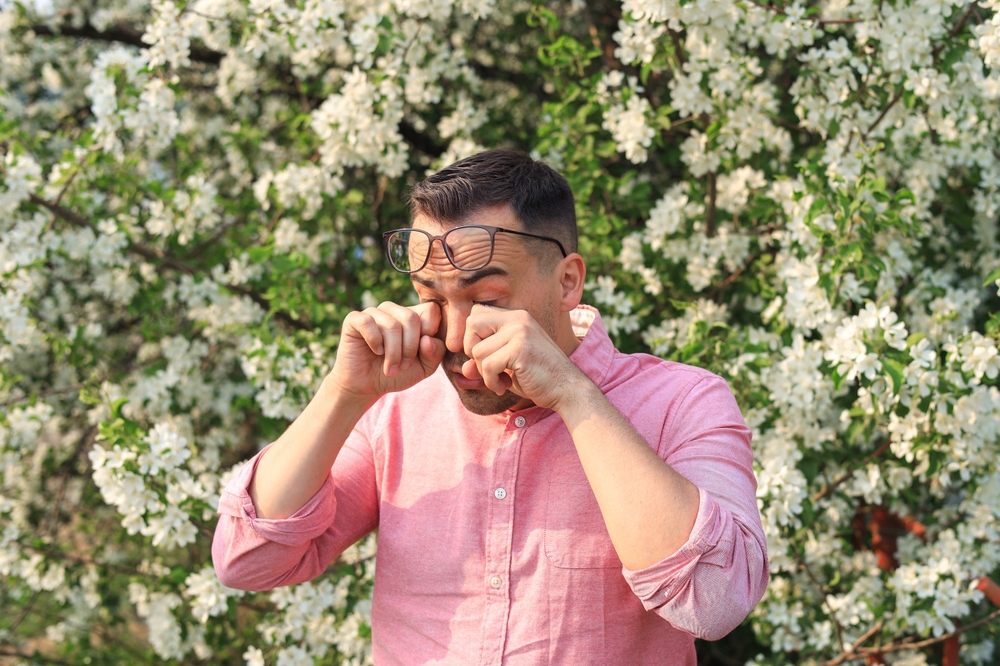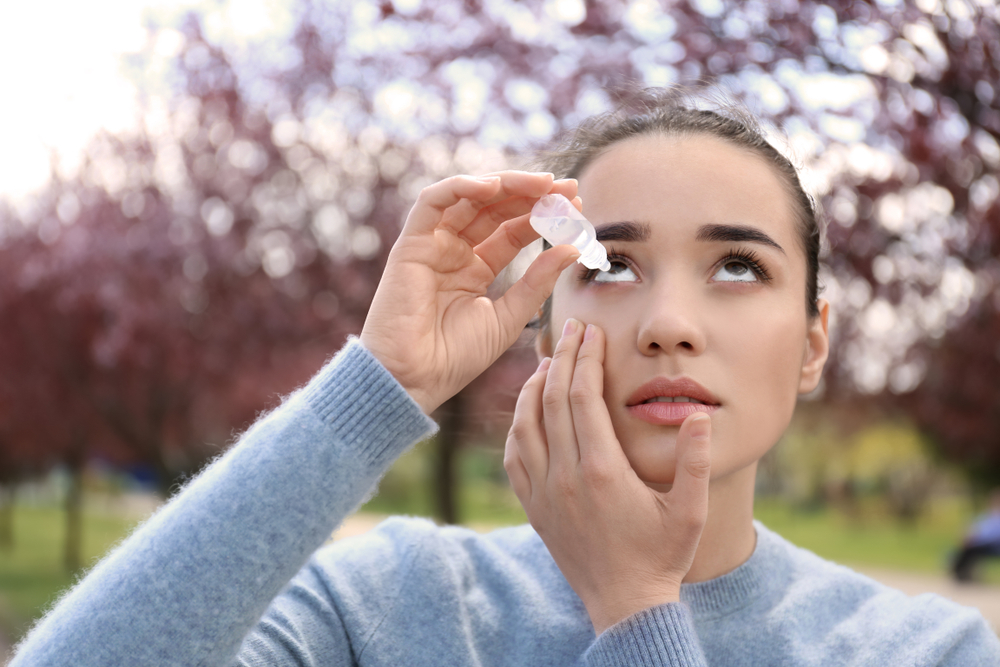Can I Have Eye Allergies and Dry Eyes?
June 5, 2024
Dry, itchy, or watery eyes are no fun, no matter what's causing them. Symptoms of dry eyes or allergies can interrupt a pleasant day outdoors or make it harder to see so you can concentrate on work.
Allergies and dry eye syndrome are two different conditions. You can have both simultaneously, with each one increasing each other's symptoms and making you feel worse.
Understanding what's causing your irritated eyes is the first step toward getting the proper treatment to ease symptoms. Keep reading to find out if you can have eye allergies and dry eyes and what it can mean for keeping your eyes healthy!
Allergies and Your Eyes
 Allergies are an immune reaction where your body reacts to a harmless substance as if it's attacking the body. Your body releases chemicals called histamines to try and fight the allergen.
Allergies are an immune reaction where your body reacts to a harmless substance as if it's attacking the body. Your body releases chemicals called histamines to try and fight the allergen.
Histamines cause physical symptoms associated with allergies, such as hives, rashes, stuffy or runny nose, sneezing, headache, or sore throat. Allergies can also affect the eyes, causing symptoms including:
- Redness
- Itching
- Burning
- Watery eyes
- Swollen eyelids
- Feeling like there is dirt or grit in your eyes
- Puffy eyelids or dark circles under the eyes
Common allergens include:
- Pollen
- Pet dander
- Dust mites
- Mold
- Smoke
- Perfume
- Air pollutants
Allergies produce more significant itching than dry eye syndrome, which is a telltale clue that pollen or other allergens are causing your symptoms.
Dry Eye Syndrome
Several things cause dry eyes, but one of the most significant causes is your eyes not having enough lubrication. Eyes typically produce a multi-layered tear film that protects the eyes.
If you don't produce enough moisture for the tear film, the eye's surface will feel dry, making it more susceptible to injury or infection. Common symptoms of dry eye include:
- Grittiness or feeling like there's sand in your eyes
- Burning or stinging
- Soreness
- Excess tearing and watery eyes
- Redness or swelling of eyelids
- Mucus or discharge from the eyes
- Discomfort while wearing contact lenses
- Increased light sensitivity
Do You Have Dry Eyes?
Allergies and Dry Eyes Together
If you have dry eyes, allergy season can cause a flare-up of symptoms. Pollen, dust, and other airborne allergens can cause inflammation or irritation that triggers dry eye symptoms.
Dry eye can also make allergies feel worse. The tear film usually protects eyes from airborne allergens, washing them away as you blink. Dry eyes can result in insufficient tears to clear allergens from the eye.
If you have allergy symptoms and a history of dry eyes, you should talk to your ophthalmologist or optometrist at Metropolitan Ophthalmology Associates about how to best manage your allergies. Antihistamine eye drops are a common treatment for itchy eyes caused by allergies, and they can provide significant relief from allergy symptoms.
However, these drops can also decrease tear production, which can cause a flare-up of dry eyes. Using lubricating eye drops in addition to or instead of allergy eye drops may help.
You can also take other steps to minimize allergy symptoms and reduce your exposure to allergens, such as:
- Closing windows in your house and car prevents pollen from entering through windows or screens
- Wearing sunglasses or glasses outdoors to shield your eyes from pollen and other airborne allergens
- Use a mattress cover to prevent dust mites from getting in your bed
- Using a dehumidifier to reduce indoor mold accumulation
- Wash your hands after petting animals
- Use air purifiers in the rooms where you spend the most time, such as your bedroom, living room, or home office
- Use artificial tears to flush allergens out of your eyes if you experience irritation
You may also want to talk to an allergist about treatments available to manage allergies. Prescription medication may help reduce allergy symptoms.
Allergy shots can reduce your body's reaction to allergens over time, so you won't suffer from allergy symptoms. In addition to managing your allergies, you can take steps to relieve the symptoms of dry eye syndrome.
Making a few changes to your home or office can reduce dry eye symptoms and help you feel more comfortable, like:
 Using lubricating eye drops to keep your eyes moist
Using lubricating eye drops to keep your eyes moist- Avoid sitting near fans or air vents that blow into your eyes
- Use warm compresses to rest your eyes and soothe inflammation
- Take frequent breaks when reading or using a computer. If your eyes feel dry, try closing them or blinking for a few seconds. This can distribute tears over the surface of your eyes.
- Set your computer screen slightly below eye level. The lower angle can keep your eyelids lower over your eyes to avoid eye strain and symptoms associated with dry eyes.
If your dry eye symptoms don't respond to at-home treatments, the next step is seeing your ophthalmologist or optometrist at Metropolitan Ophthalmology Associates. They can determine the root cause of your dry eyes and develop an appropriate treatment plan to reduce and treat your symptoms.
You may need prescription eye drops or medications to increase tear production or reduce inflammation. Your ophthalmologist or optometrist may suggest other treatments, such as punctal plugs to close tear ducts, which can help tears stay on the surface of your eyes longer, reducing evaporation.
Are dry eyes or allergies part of your daily life? They don't have to be.
Request an appointment at Metropolitan Ophthalmology Associates in McLean, VA, and Chevy Chase, MD, today to find relief for your dry eyes! It's time to stop suffering and enjoy clear vision again!



